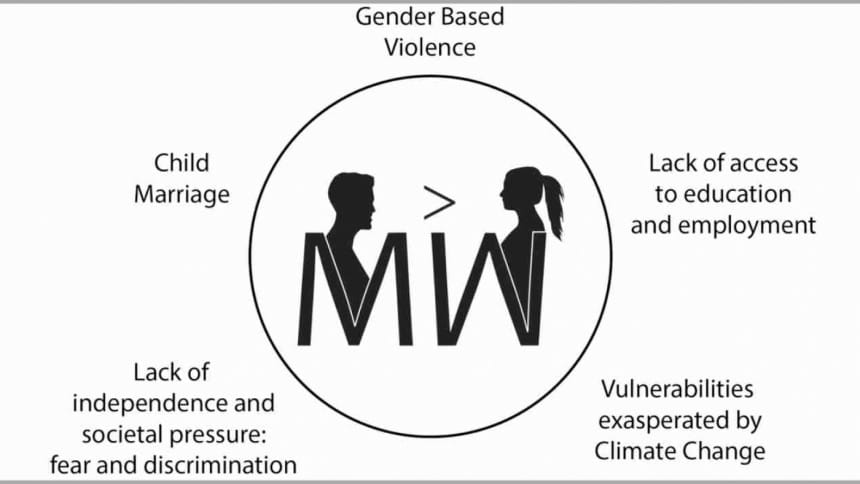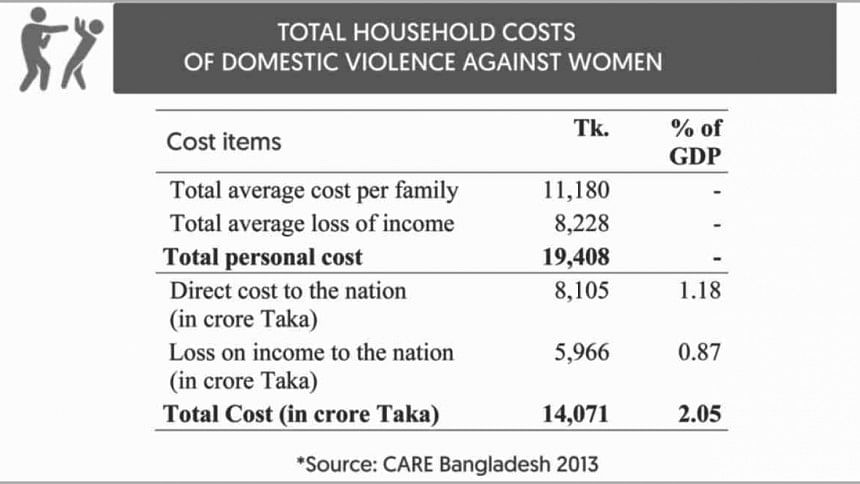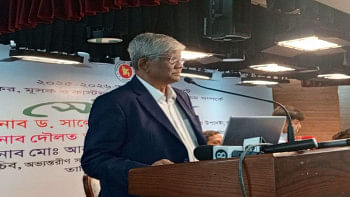Closing the gaps for gender equality: The role of the Bangladesh Police in fighting Gender Based Violence

The Sustainable Development Goals call for an integrated approach, taking environmental, social and economic dimensions into account: planet, people and prosperity. This year's theme clearly points towards the importance of considering Gender throughout all dimensions. Gender equality entails many things, equal rights, equal pay and equal opportunities and requires efforts from several ends.To achieve this girls and women need to be treated with respect and be able to live freely in a world without fear and with the access to services they require. Yet, as we all know, freedom from fear remains out of reach for too many people. For millions of women and girls, living with widespread gender discrimination and violence, fear is a constant companion. Especially in humanitarian settings it is girls and women who are more vulnerable. Gender-based violence (GBV) occurs as a cause and consequence of gender inequities and is exasperated in humanitarian settings, which will occur ever more frequently due to Climate Change. GBV occurs in many forms, including but not limited to intimate partner violence, domestic violence, sexual violence, and femicide. GBV needs to be addressed from several dimensions: from the legal and law enforcement side, the health sector's response and at social and community level. Today we will take a closer look at what law enforcement agencies in Bangladesh have done to address GBV.
Globally, one in every three women (30%) has experienced physical and/or sexual intimate partner violence in their lifetime. The frequency and severity of gender-based violence varies across countries, but the negative impact it has on individuals and on families is universal and has direct links to health problems. Violence against women impoverishes individuals, families, communities and governments and reduces the economic development of a nation. There is a clear link between women's empowerment and social and economic development. Without women's full participation national goals, such as those laid out in the Government of Bangladesh's Seventh Five-Year Plan, but also the global goals of the Agenda 2030 will not be achieved and to know whether goals are being achieved data has to be available.
In Bangladesh GBV persists largely due to deep rooted practices and traditional social norms that favor boys over girls. Violence takes place at home, at the workplace and in public spaces. Prior to 2011 the much needed reliable data on the prevalence of GBV was not available for Bangladesh, prevention, response and mitigation measures were therefore not given sufficient attention by government and non-government institutions. Making use of the existing partnership UNFPA had with the National Statistics Office, the Bangladesh Bureau of Statistics, the first ever Violence Against Women Survey was carried out in 2011 and published in 2013, providing evidence-based insight into the extent of the problem in Bangladesh.

The survey revealed that 87% of ever married women have experienced any kind violence by their current husband, 77% reported any type of violence in the past 12 months, and 65% reported physical violence. Only 2.4% survivors took legal actions against current husbands and 8.9% against previous husbands after being subjected to physical violence by them. As many as 14% of maternal deaths are associated with GBV. Social norms are still tolerant of GBV. Accessing justice still remains complicated, costly, and lengthy for women and the poor. Women seeking justice are stigmatized at times. Incidences of GBV being openly committed in public spaces have increased dramatically over the past few years, further restricting women's free movement. Reliable data on actual incidences of GBV committed has remained difficult to obtain, as there was a clear lack of documentation. This posed severe challenges for any development or government organization to monitor progress in addressing GBV issues in Bangladesh.
UNFPA therefore chose to work together with the Bangladesh Police under the Ministry of Home Affairs (MoHA) to strengthen protection services for GBV survivors. The lack of national data on GBV cases reported has now been solved by integrating cases of GBV in a more detailed manner into the already existing crime data management system (CDMS) used by Police and thus allowing to track both prevalence and conviction rates. The new GBV data interface is already up and running will be fully accessible at the Bangladesh Police website starting September 2016. Information is entered at two separate stages, directly at the police station after receiving the first report of the case and then again by a police court inspector at court once the case is brought to the judiciary. Despite preliminary concerns regarding the security of data the Bangladesh Police and senior officials have proven to be highly invested in change to be even more service orientated and gender sensitive.
Along with the improved documentation and follow-up of GBV cases police officers have also received specialized training on how to best deal with GBV cases including training on sexual and reproductive health, as well as response to GBV in humanitarian crisis. To date a total of 44 police stations in five districts including the Dhaka Metropolitan Area are staffed with police officers who have acquired these specific skills. A Standard Operating Procedure for police stations has also been developed to guide police officers through the highly sensitive and often emotionally challenging process of dealing with survivors of GBV and will soon be shared with all police stations in the country. Specialized Women Help Desks have been established in 15 police stations. These are staffed by trained female police officers and provide victims with a safe and friendly environment to file their cases. Police are furthermore trained to refer survivors to the appropriate heath facilities to provide the medical treatment they may require. Referral to a Women's shelter is moreover a possibility.
Addressing GBV once the crime has been committed is of course only one aspect, the prevention of such cases is even more important. The Bangladesh Police has also been at the forefront of supporting awareness raising and training programs, especially for adolescents and youth.
Making the world and Bangladesh a more peaceful, equitable and also prosperous place will require discussing traditional gender norms and how they can be changed to ensure a safe, just and equal life for all. It will also require the further strengthening of existing social and legal efforts to protect and empower girls and women. The prevention of GBV needs to be linked to other areas of intervention such as poverty reduction. Greater economic opportunities for young people, especially girls, through higher education and skills have the potential to reduce domestic violence by improving the economic status of households. This would also mean fighting child marriage, by delaying the age at marriage for girls; more opportunities for higher education and employment, will again contribute to household income. Knowledge on and access to sexual and reproductive health and rights will further empower people to make the right choices for their own lives being in a position to better plan their families and future. All of these measures need to be guided by evidence, requiring the generation of reliable and accurate data. The second VAW survey, supported by UNFPA, is therefore currently underway.
Source: UNFPA Team

 For all latest news, follow The Daily Star's Google News channel.
For all latest news, follow The Daily Star's Google News channel. 



Comments